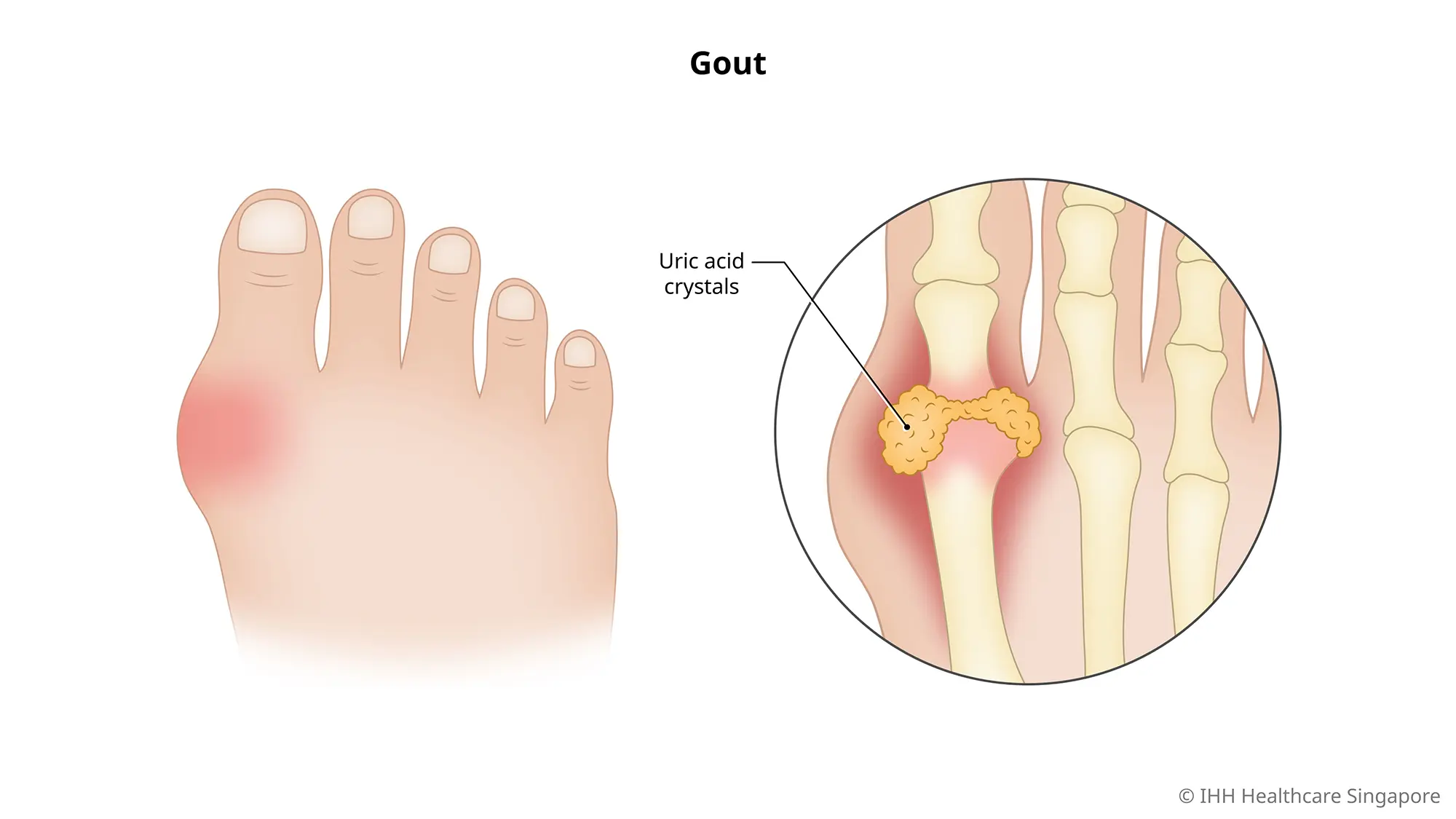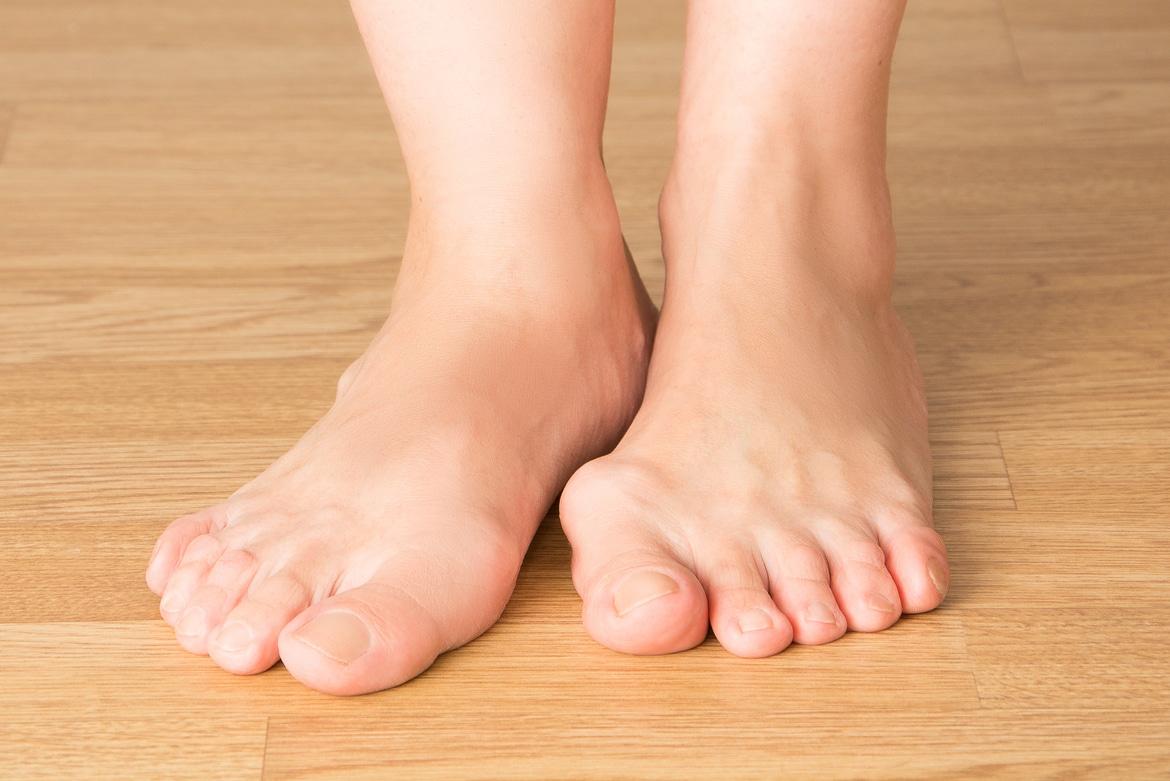-
-
Featured Care Areas

Gout
What is gout?
Gout is a form of crystal arthropathy that affects the joints. High levels of uric acid in the blood can lead to the uric acid accumulating in a joint and causing an intense inflammatory reaction and pain.
Gout is the most common form of inflammatory arthritis. The condition commonly affects joints such as the:
- Big toe
- Foot
- Ankle
- Heel
- Instep
- Knee
Less commonly, gout can also affect the joints of the upper limbs such as the fingers or wrists.
Gout can cause sudden, severe attacks of pain, redness and tenderness in the joint. The affected joint may feel so tender that you have difficulty turning over in bed, or you may wake up in the middle of the night feeling like your big toe is on fire.
What are the symptoms of gout?
The first sign of a gout attack is a sudden warm throbbing of the affected joint.
This pain can quickly become excruciating and escalate to swelling and redness of the joint. The initial episode usually subsides completely within a week.
Other symptoms include:
- Difficulty and pain in walking during an acute attack.
- Extremely large uric acid crystals (tophi) in the joints or other tissues.
- Ongoing (chronic) pain with reduced movement in the involved joint.
- Tender, sensitive and sore skin around the joint, that may be extremely painful to touch.
What causes gout?
Gout is caused by excess uric acid in the blood. Uric acid is formed by the body when it breaks down purines, a common chemical compound found in foods and drinks.
Usually, uric acid passes through the kidneys. However, a diet high in purines may lead to excessive amounts of uric acid in the blood, which cannot be sufficiently excreted through urine.
The excess uric acid will be deposited in the joint, where it forms crystals known as tophi. These crystals cause inflammation, swelling and pain.
What are the risk factors for gout?
Risk factors for gout include:
- A high-purine diet that is heavy in red meat, organ meats, seafood, beer and fructose (fruit sugars).
- Obesity, which causes your body to produce more uric acid and also makes it harder for the kidneys to eliminate uric acid.
- Medical conditions such as congestive heart failure, high blood pressure, diabetes, metabolic disease and kidney disease.
- Certain medications such as aspirin and thiazide diuretics (usually prescribed for high blood pressure), which can increase uric acid levels.
- A family history of gout makes it more likely that you will also develop gout.
- Gender, with men more likely to develop gout between 30 – 50 years. Post-menopausal women also face a higher risk.
What are the complications and related diseases of gout?
Left untreated, gout can lead to complications such as:
- Joint damage, leading to deformity and restricted mobility.
- Accumulated deposits of uric acid crystals under the skin.
- Accumulations of uric acid crystals in the urinary tract, leading to kidney stones.
- Recurring episodes of gout, which may increase in frequency if the high level of uric acid is not reduced.
- Reduced kidney function or kidney failure.
- High blood pressure.
How do you prevent gout?
It may not be possible to completely prevent gout. However, lifestyle adjustments can help to reduce the severity and frequency of gout attacks.
You can reduce your risk of gout by:
- Limiting or avoiding alcohol, especially beer.
- Limiting or avoiding sweetened drinks, especially those containing high fructose corn syrup.
- Limiting your consumption of meat, especially red meat, organ meats and seafood.
- Maintaining a healthy body weight. If you need to lose weight, avoid fasting or drastic weight loss as this may temporarily increase uric acid levels.
- Increasing your intake of water and low-fat dairy products. These have a protective effect against gout.
This page has been reviewed by our medical content reviewers.
Need help?
For enquiries, please call
+65 6575 7575
For appointment bookings, please WhatsApp
+65 8111 9777







